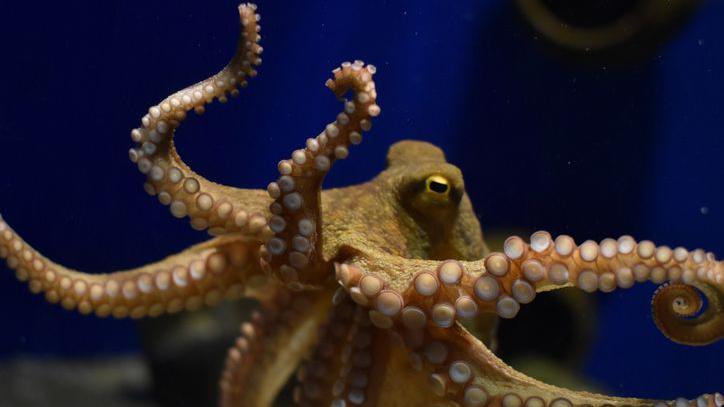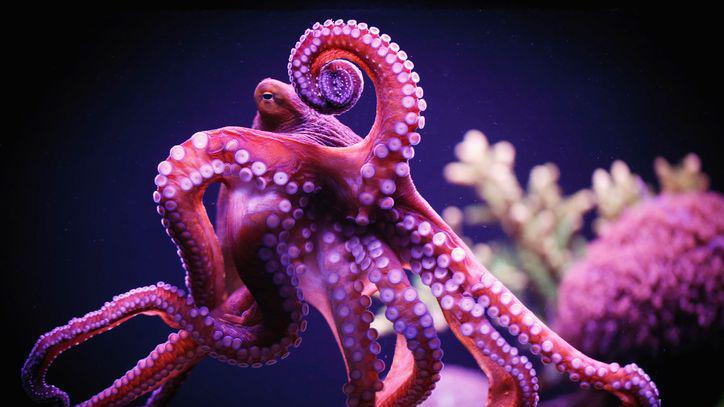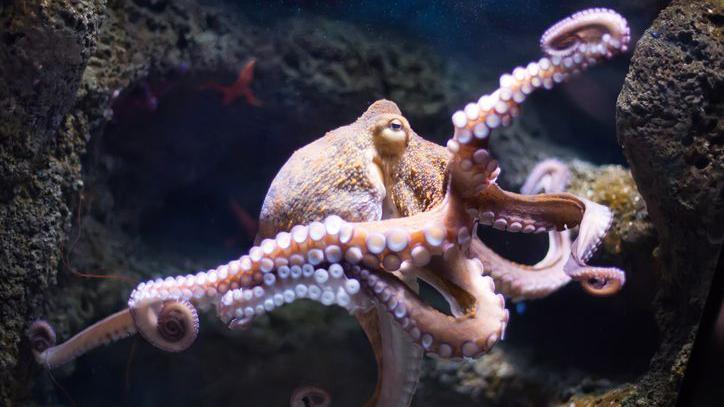Octopuses use different arms for different things

- Published
Octopuses are pretty unusual animals.
They have blue blood and three hearts, as well as having eight arms - which they use for everything from communication, to building dens and capturing their prey.
However, scientists now think that, like humans, these special creatures prefer using certain arms for certain things.
A new study suggests they tend to use their front ones to help them explore, while the back arms mainly support movement.
More animal news
- Published11 September
- Published10 September
- Published9 September
What did scientists discover?

Scientists from Florida Atlantic University along with researchers from the Marine Biological Laboratory in Massachusetts, in the US, decided to take a closer look into how wild octopuses use their arms in natural habitats.
They studied nearly 4,000 arm movements from 25 video recordings of three wild octopus species in the Caribbean and in Spain.
For each clip, the team looked at what the octopus was doing, as well as which of the four ways the octopus was moving each arm.
Octopuses can shorten and lengthen their arms as well as bend and twist them.
Experts found that every arm is capable of performing all actions - but a clear pattern emerged.
Front arms mainly used actions to help in exploration, while back arms used actions that mainly support movement.
In addition, the team found that octopuses were very flexible - and use a number of arms at the same time, as well as finding that all the arms could move in all four ways.

Lead author of the study Dr Chelsea Bennice explained: "Observing them in the wild, we saw octopuses use different combinations of arm actions.
"Sometimes just one arm for tasks like grabbing food, and other times multiple arms working together for behaviours like crawling or launching a parachute attack – a hunting technique they use to catch prey."
Experts say that their findings could be important in the future.
"Understanding these natural behaviours not only deepens our knowledge of octopus biology but also opens exciting new avenues in fields like neuroscience, animal behaviour and even soft robotics inspired by these remarkable creatures," Dr Bennice added.
